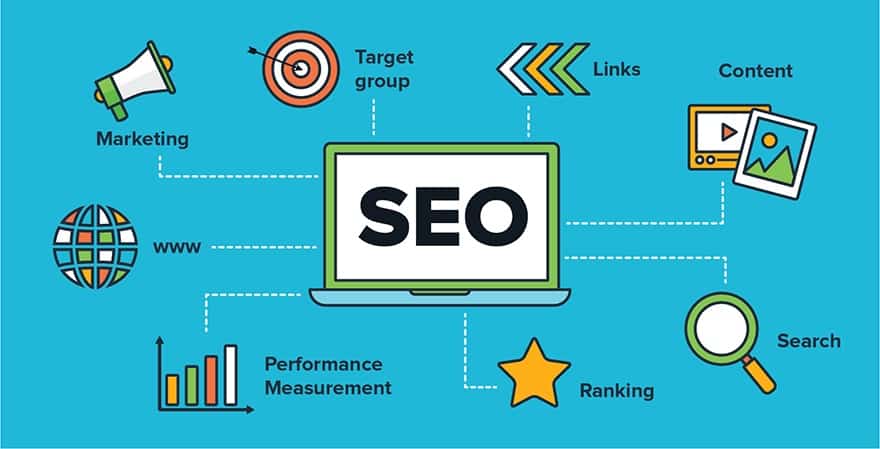More than seven billion organic searches happen on Google every day, according to Worldometers. People are looking for solutions on Google. If you’re a business owner or your company’s marketing lead, you probably know the importance of having a website for your business. But is that enough? How would people know that your website exists? Is it possible to get tons of website traffic without a hefty marketing budget?
The answer to your questions is SEO (Search Engine Optimization). It is a set of practices of optimizing your website to rank its pages on Google’s search results and drive traffic to your website. SEO can be both a piece of cake and overwhelming – depending on your approach towards it.
We have listed six key elements of SEO that you need to be aware of to make its best use. Read on!
Understanding The Basics: How Do Rankings Happen?
When someone types a search query in a search engine (also called keyword), the search engine looks for all the web pages that have been optimized for that particular keyword. It then shows the most relevant results to the user to satisfy their query.
For instance if people type “best digital marketing consultant in New York”, and one of your website’s posts or page is optimized for the same keyword, chances are it will be shown in the search results.
Breaking Down SEO
SEO can be classified into two parts:
- On-Page SEO
- Off-Page SEO
Let us dive deep into these concepts one by one.
On-page SEO
On-page SEO is a set of practices that are done on the website to optimize it perfectly. Google has bots (also known as spiders) that crawl the websites to check if they are optimized for Google. However, a properly optimized website is only half the battle won, and certain activities need to be taken care of. These include:
Keyword Research
See it this way: Keyword Research + User Behavior Research = 50% SEO.
Keywords will bring traffic to your webpage. So, it’s important to research the right ones to expect targeted organic traffic. An effective keyword research strategy is to search for high search volume and low competition keywords relevant to your industry. You can also leverage useful keyword research tools like Ahrefs, SEMRush, and Ubersuggest. These tools will estimate a keyword’s search volume, competition, and the keyword difficulty that will help you pick the relevant keywords.
There are two types of keywords you need to look for. These are:
- Primary keywords: The main keyword that you want to rank your webpage for. Example: Best SEO strategy for startups
- Secondary Keywords: a bunch of keywords that are similar to your primary keyword. Example: Effective SEO strategy, elements of a good SEO strategy, SEO for startups, etc.,
Content
Remember, “Content is King” when it comes to SEO. Google loves websites that have high-quality and unique content. Google is a fully customer-centric company. Ranking a website with plagiarized content will hamper its reputation. That is why it has state-of-the-art technology that can detect the quality of the content. Moreover, long-form content performs better on Google.
Ensure that your website’s content is unique, high-quality, long-form, and has the right information to avoid being penalized by the search engines.
Here is how you need to sprinkle the keywords in your content:
- Primary keyword in your title, URL, Meta Description, first twenty-two words of your blog, one of the H2s (headings), and Image alt text (text that describes the image).
- Secondary Keyword in the H2s, body, and image alt texts.
Note: Ensure that the primary keyword’s density doesn’t exceed 1-1.5% of the total words in the article. For example, if your article contains 1000 words, you shouldn’t use the primary keyword more than 10-15 times.
Meta Title & Description
The title published in Google’s result pages is called meta title. It can’t be more than 55 characters to be shown fully in Google’s results. Moreover, don’t forget to include the primary keyword in your title.
Below your post’s title, the search engines display text (150 characters) that outlines what the post is about and how it will help the reader. Ensure that you’ve used your primary keyword in the description to better optimize your post/page.
Off-page SEO
Off-page SEO comprises all the practices you do outside of your website to increase its authority and credibility. Below are some of the effective ways of doing Off-page SEO:
Building Backlinks
When you place your website’s link in some other high-authority website, you get a backlink from them. This transfers some of that site’s authority to your site (also called link juice). The more backlinks you build, the more your site’s credibility increases in the eyes of search engines. Backlinks are basically votes in favor of your website, indicating the search engines that your site is credible and needs to be ranked higher.
Backlinks are of four types: no-follow, do-follow, sponsored, and “me” backlinks.
Social media
You can also create social media pages (Facebook, Instagram, Youtube) and place your website’s link there. Not only will it work as a backlink, but your website will also get social traffic – which encourages the search engines to boost your site’s rankings.
Forums
Forum sites like Quora & Reddit are a great way of building backlinks and getting traffic to your site. Ensure that you select the questions that are popular and relevant to your products and services. Write detailed answers using images and videos and include your site’s link to get additional traffic.
Final Word
SEO, if done right, can fetch you tons of traffic and potential customers. We hope the tips mentioned in this article will help you leverage the true power of SEO for your website while boosting your business.

